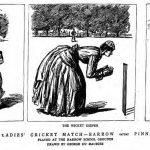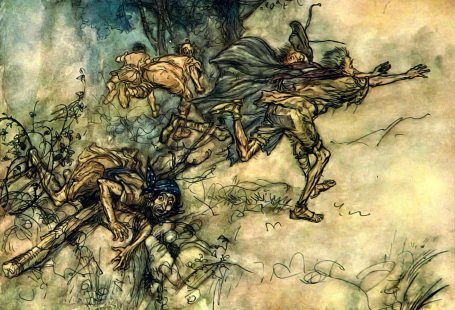This week we have added 116,100 new pages to The Archive, and we are delighted to welcome five very special new newspapers to our collection. Three of these newspapers are early socialist publications, which trace the origins of the Labour party movement, including the election of the first Labour government in 1924 and beyond. These titles are Forward (Glasgow), the Labour Leader and Clarion. Later on in the blog we will take an in depth look at these titles, which are a must read for anyone with an interest in the history of the Labour party.
We have two other intriguing titles joining us this week. One of these is the Calcutta Gazette, which is one of the earliest newspapers to be published in India. Weekly publication began in March 1784, and continued for over 200 years. We currently have the years 1784 to 1815 available on our Archive. Please note that as you browse this title, due to the antiquity of this publication, some of the page sizes do vary somewhat. Another new specialist title added this week is Witness (Edinburgh), an evangelical Scottish newspaper, which was established by geologist and writer Hugh Miller.
Our existing titles have not be neglected this week either. We have updates to twenty-one of our existing titles, covering the length and breadth of Scotland, Ireland and England. We are excited this week to have updates to two of our Cornish titles – the Royal Cornwall Gazette and Lake’s Falmouth Packet and Cornwall Advertiser. We have updates to seven of our Scottish titles, including the John o’Groat Journal and the Perthshire Advertiser.
We are excited this week to explore the three new Labour titles added to The Archive. Although all three titles were united in a similar political cause, they are arguably quite different publications. For example, the Clarion, founded by Robert Blatchford and Alexander M Thompson in Manchester in 1891, often took a quite jovial approach to the seriousness of politics.
Socialist writer and politician Margaret Cole wrote of it: ‘There never was a paper like it. It was not in the least the preconceived idea of a socialist journal. It was not solemn; it was not highbrow…It was full of stories, jokes and verses.’
Indeed, Clarion came to be associated with a range of activities such as cycling, handicrafts and rambling. For example, in March 1913 Clarion published its Spring Cycle Supplement, in which Tom Groom, the National Secretary of the Cycle Club, gave his report:
Good healthy lot of reports in this week. Increase in membership of most of the sections and hopeful tone about them all. Good! That ten thousand is coming along. Since November last I have heart from twenty sections that I had almost given up as lost.
As it turned out, Tom Groom did not have to fear about the dissolution of the cycle societies – The National Clarion Cycling Club is still in existence today.
Another of our new titles this week, the Labour Leader, varies somewhat from its socialist companion Clarion. Its origins lay in The Miner, a newspaper established by Keir Hardie to advocate for the federation of Scottish miners. When Hardie became a founding member of the Scottish Labour party, the newspaper was renamed the Labour Leader. In 1904 the newspaper was sold to the Independent Labour Party, and from 1909 Labour members were encouraged to contribute to the newspaper.
Labor Leader | 7 February 1908
Whilst Clarion showed some support to the First World War, Labour Leader editor Fenner Brockway took a firmly pacifist stance. Throughout the war he printed a serious of front pages with the headline ‘Down with the War!’
Workers of Great Britain, you have no quarrel with the workers of Europe. They have no quarrel with you. The quarrel is between the RULING classes of Europe. Don’t make their quarrel yours.
Brockway went on to be charged with publishing seditious material, although he was not convicted. Forward (Glasgow, a newspaper rooted in the socialist and temperance movements, also offers a fascinating commentary on the First World War. It offers scathing commentary on other publications, such as The Times:
The ex-workhouse paupers, says the London Times, are enjoying good times outside during the war, and they know “that when the good time is over the old comforts of pauperism are awaiting them.” The fish-blood who wrote that wrote it at Christmas.
These newspapers all offer a fascinating insight into the socialist and Labour movements, and are integral tools for anybody researching these topics. Keep checking our weekly blogs as we continue to update The Archive with the more material concerning the early history of the Labour party.
New Titles
Title |
Years Added |
| Witness (Edinburgh) | 1840-1841, 1852, 1855-1856, 1858, 1860, 1862 |
| Forward (Glasgow) | 1916-1919, 1921-1922 |
| Labour Leader | 1894-1895, 1898, 1900-1904, 1908-1916, 1918-1919 |
| Clarion | 1891-1894, 1896-1913, 1928-1932 |
| Calcutta Gazette | 1784-1815 |
UPDATED TITLES
This week we have updated twenty-one of our existing titles.
You can learn more about each of the titles we add to every week by clicking on their names. On each paper’s title page, you can read a FREE sample issue, learn more about our current holdings, and our plans for digitisation.
Title |
Years Added |
| Liverpool Daily Post | 1877 |
| Aberdeen Press and Journal | 1985-1987 |
| Aberdeen Evening Express | 1985-1987 |
| Lake’s Falmouth Packet and Cornwall Advertiser | 1912 |
| Perthshire Advertiser | 1885, 1946 |
| Field | 1869 |
| John o’ Groat Journal | 1912 |
| Oban Times, and Argyllshire Advertiser | 1875 |
| Hamilton Advertiser | 1875, 1898-1899 |
| Motherwell Times | 1959 |
| Liverpool Echo | 1894-1896 |
| Manchester Evening News | 1891 |
| Salisbury and Winchester Journal | 1912 |
| Hartlepool Northern Daily Mail | 1959 |
| Lichfield Mercury | 1956, 1959-1963 |
| Grantham Journal | 1959 |
| Sligo Champion | 1931-1941, 1949, 1952, 1959-1963 |
| Newcastle Journal | 1880, 1883 |
| Chelmsford Chronicle | 1838 |
| Norfolk Chronicle | 1846 |
| Royal Cornwall Gazette | 1912 |
Register now and explore the Archive
You can keep up to date with all the latest additions by visiting the recently added page. You can even look ahead to see what we’re going to add tomorrow.











